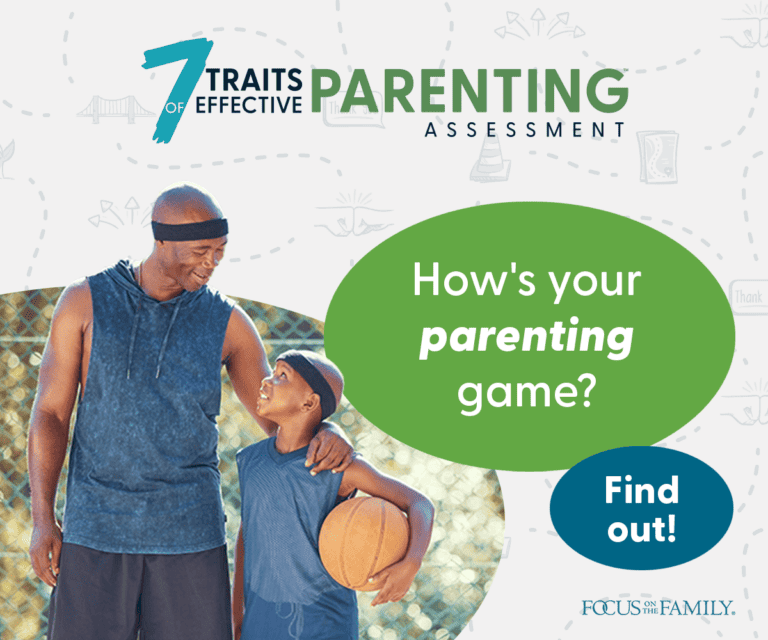Perhaps you’ve seen the survey conducted by the Barna Research Groups, which determined that only four percent of Americans have a biblical worldview. Even more alarming, only nine percent of born-again believers in America have a Christian worldview. Probably you’ve see the devastating results of a secular worldview: broken families, wasted lives and ineffective Christians.
It is important that we have a good handle on what a worldview is so that we can grow in our own commitment to the truth, and to help those we love to grow in their commitment as well.
“Although most people own a Bible and know some of its content, our research found that most Americans have little idea how to integrate core biblical principles to form a unified and meaningful response to the challenges and opportunities of life.” – George Barna
What’s a worldview?
A worldview is the framework from which we view reality and make sense of life and the world. For example, a two-year-old believes he’s the center of the world, a secular humanist believes that the world is all that exists and a Buddhist believes he can be liberated from suffering by self-purification. Someone with a biblical worldview believes his primary reason for existence is to love and serve God.
Whether conscious or subconscious, every person has some type of worldview. A personal worldview is a combination of all you believe to be true and what you believe becomes the driving force behind every emotion, decision and action. Therefore, it affects your response to every area of life: from philosophy to science, theology and anthropology to economics, law, politics, art and social order — everything. It is the interpretive “lenses‚” we use for understanding what we believe is real. From our personal worldview spring all of our actions and thoughts, and it is in unguarded moments when we can really see what we believe to be true.
For example, on Sunday morning the pastor asks for a show of hands of everyone who believes that God is the Provider of everything that we have or need now and for the rest of our lives. However, like many of the others who raised their hand, let’s suppose you struggle with anxiety and worry. The important question then is, “Do you really believe that what you believe about God being the Provider is really real?” Worldview speaks about these core beliefs.
What’s a biblical worldview and how does a biblical worldview get diluted?
A biblical worldview is based on the infallible Word of God. When you believe the Bible is entirely true, it is the foundation of everything you say and do. That means, for instance, you take seriously the mandate in Romans 13 to honor the governing authorities by researching the candidates and issues, making voting a priority.
Here is the big problem. Non-biblical worldview ideas don’t just sit in a book somewhere waiting for people to examine them. They bombard us constantly from television, film, music, newspapers, magazine, books and academia. Because we live in a selfish, fallen world, these ideas seductively appeal to our flesh, and we often end up incorporating them into our personal worldview — often without even knowing it.
For example, most Christians would agree with I Thessalonians 4:3 and other Scriptures that command us to avoid sexual immorality, but how often do Christians fall into lust or premarital and extramarital sexual sin? Is it simply because they are weak when tempted. Or did it begin much earlier, with the seductive lies from our sexualized society?
Why does a biblical worldview matter?
If we don’t really believe and live the truth of God, then our witness will be confusing and misleading. Most of us go through life not recognizing that our personal worldviews have been deeply affected by the world. Through the media and other influences, the secularized American view of history, law, politics, science, God and man affect our thinking more than we realize. We then are “taken captive through hollow and deceptive philosophy, which depends on human tradition and the basic principles of this world rather than on Christ.” (Colossians 2:8)
However, by diligently learning, applying and trusting God’s truths in every area of our lives, we can begin to develop a deep comprehensive faith that will stand against the unrelenting tide of our culture’s non-biblical ideas. If we capture and embrace more of God’s worldview and trust it with unwavering faith, then we begin to make the right decisions and form the appropriate responses to questions on abortion, same-sex marriage, cloning, stem-cell research and even media choices. Because, in the end, it is our decisions and actions that reveal what we really believe.
How do we address this great need?
It will take a monumental effort to change the course of our society, starting first with our own understanding of God’s truth. So, we have launched one of the most ambitious initiatives in Focus on the Family’s history, Focus on the Family’s The Truth Project‚Ñ¢. Through this DVD-based, 12-week home study, we hope to initiate transformation in the lives of thousands. We also expect that many will desire to lead these studies, and we are prepared to train and support facilitators, whom we are calling change agents, through training events, resources and a robust Web site, www.thetruthproject.org.


















